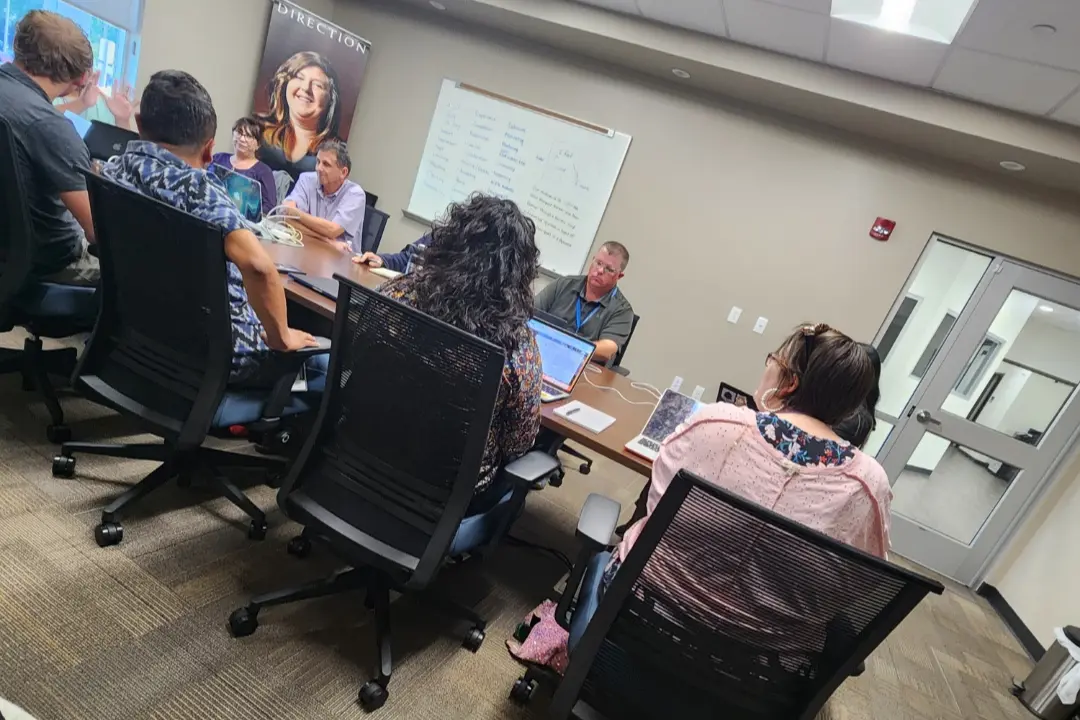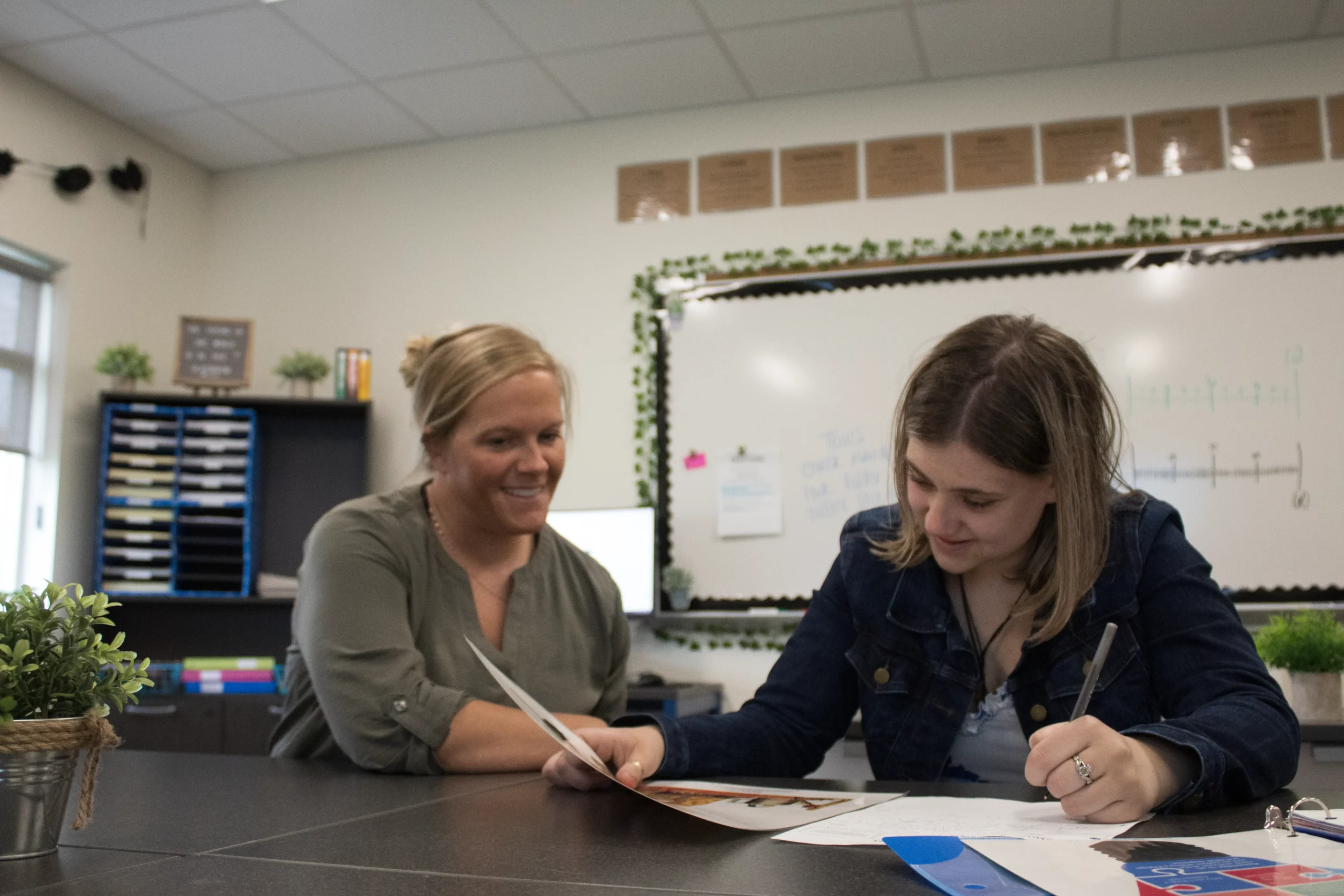What is Holistic Support and Why is it Important?
At OPTIONS Transitions to Independence, holistic support means addressing every aspect of programming and services students need to become fully functional young adults and achieve their version of independence. Unlike traditional approaches that focus on isolated elements of a student’s needs, holistic support considers the student as a whole. This includes not only academic coursework but also speech-language sessions, vocational classes and experiences, independent living services, and physical and mental well-being.
Each student’s holistic programming at OPTIONS is individualized to their specific needs and goals. For some, the focus might be on academics, while others might concentrate more on vocational experiences. Regardless of the focus, every team member at OPTIONS collaborates to support the individual goals of each student. For instance, the speech-language pathologist might sit in on a vocational class to observe whether skills practiced in individual sessions are effectively translating to the classroom. Similarly, the college liaison communicates with independent living staff and the vocational coordinator to ensure that the student’s academic and vocational goals are aligned.
What is Holistic Support and Why is it Important?
The Role of Collaboration in Holistic Support
Collaboration and communication are at the heart of holistic support. The director of student services at OPTIONS acts as a bridge between the OPTIONS team and additional service providers, such as doctors, psychiatrists, psychologists, and therapists. This comprehensive approach ensures that all aspects of a student’s needs are addressed, from learning disabilities to mental health challenges.
But why is such collaboration necessary? Shouldn’t students be learning to manage these interactions independently? While the goal is for students to navigate these challenges on their own eventually, the reality is more complex. For example, students with ADHD may lack the executive functioning skills to communicate their needs effectively, while others may struggle with anxiety that makes self-advocacy overwhelming. Here, the collaborative work of the speech-language pathologist, college liaison, vocational coordinator, and director of student services is crucial. They assist the student in identifying their needs, planning how to communicate them, and following through with advocacy.

A regular Monday OPTIONS team meeting, where staff members gather to discuss and collaborate on individualized strategies for each student. The team works together to ensure the best outcomes, focusing on holistic support that addresses academic, vocational, and personal development goals.
Holistic Support in Action
What does it look like when all the pieces come together? At OPTIONS, using a holistic support framework enables students to achieve a wide range of successes, from earning higher education degrees to securing first-time employment. Through guided practice, students learn to communicate their needs effectively, whether with supervisors, transportation services, or therapists and relay that information to their OPTIONS team. The ultimate success occurs when students can independently put together their holistic support team post-OPTIONS.

A dedicated teacher offers one-on-one support to a student at OPTIONS Transitions to Independence, promoting independence and growth through personalized instruction.
The Significance of a Holistic Support Framework
Understanding the importance of using a holistic support framework for young adults with learning disabilities is crucial for their long-term success. Without adequate communication and support from everyone involved in a student’s life, essential information can be overlooked, and planning can miss vital elements. At OPTIONS, students learn best when they see clear, effective communication and teamwork modeled daily. This approach allows them to witness firsthand the positive impact that inclusive and collaborative support can have on their lives.
About the author: Kristin Glenn, MA, LCPC, ATR-BC, NCC, is a veteran staff member at OPTIONS Transitions to Independence. OPTIONS is the post-secondary program at Brehm Preparatory School, a boarding program in Carbondale, Illinois, with over 42 years of success. Ms. Glenn brings her expertise in counseling and art therapy to her role as director of student services. With close to 17 years of combined experience working in various roles at OPTIONS, she supports students in their mental health needs and collaborates with OPTIONS team members and outside service providers to ensure students receive the holistic support they need.




0 Comments